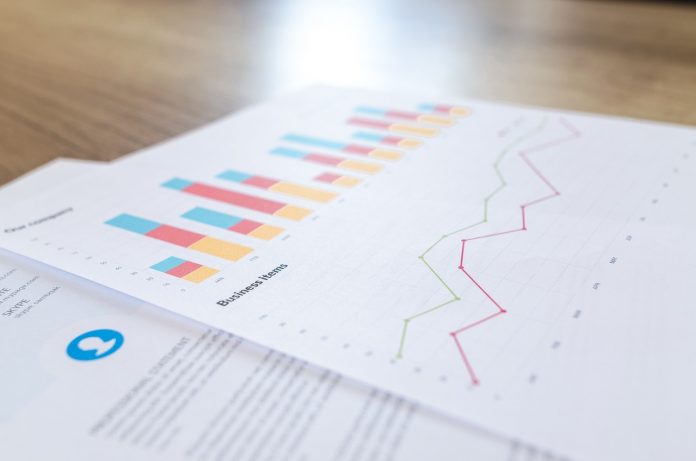A bad credit score functions almost like an anchor once it gets attached to your name. It can weigh you down significantly.
Bad credit scores affect different facets of your life.
According to NBC News, utility companies may request an upfront deposit from you instead of waiving that fee if they see that your credit score is not in great shape.
Landing your dream apartment, or any apartment for that matter, may also prove more challenging if landlords see your credit score and decide that they would rather keep the space open for someone with a less checkered financial history.
Even your job search can turn into a more troublesome affair if you have a bad credit score.
If you find yourself suddenly needing to borrow money to pay for your own or a loved one’s medical emergency, you can expect to run into some trouble as well. At best, the loan you’ll be given is going to have a high interest rate attached to it. At worst, you won’t even receive approval.
To put it simply, bad credit can make going through everyday life difficult.
Financial experts such as Truman Advisors urge people to work on addressing their poor credit as early as they can.
Listed below are a few tips you can follow to get your credit score in better shape.
1. Start By Establishing Your Credit
Obviously, before you can acquire a credit score, you first need to have registered credit. It’s never too early to start doing this. Even if you’re still a college student, building up your credit score is already a wise move.
So, how do you get the ball rolling on your credit?
There are actually a few things you can do if you want to link a credit score to your name.
2. Choose the Credit Establishment Method That Works Best for You
Credit establishment methods can be grouped into two basic categories.
On one side, you have the establishment methods that require you to own a credit card first. On the other side, you have the methods you can try even without the aid of a credit card.
For the latter category, methods you can employ include taking out an auto loan or simply paying off your existing student loans.
Regardless of how you choose to establish your credit using those loans, you have to be certain that you can make your payments on time. Failing to do so will undermine all your efforts.
Things to Know If You’re Using Loans to Establish Credit
If you already have a car but would still like to improve your credit score further, you may want to check out something known as a credit-builder loan.
According to Nerd Wallet, a credit-builder loan works differently from the majority of loans people typically apply for. Instead of the money being given to you right away, it is held on to by the lender. The money will stay with the lender until such time that you have paid it off completely.
All the payments going to your credit-builder loan will also be reported to the major reporting agencies. Credit-builder loans are harder to find because fewer lenders offer them, but they are well worth taking the time to seek out given their potential benefits.
Things to Know If You’re Using a Card to Establish Credit
Let’s say credit cards are more your speed. Don’t worry. Establishing credit with them is fairly straightforward as well.
Probably the easiest way to build credit using a card is by finding a co-signer. Getting a credit card on your own without any history will be hard to pull off. However, banks will be more amenable to approve your card if you can get someone to co-sign on your account.
You will probably need to get a trusted friend, family member, or your significant other to co-sign on your credit card because doing so incurs risk. If you handle your credit card poorly, the person who co-signed for it will also be affected. The adverse effect will come in the form of a lowered credit score.
Sometimes, finding a co-signer can be difficult.
In that case, try to apply for either a secured credit card or a retail credit card.
To acquire a secured credit card, you will first have to make a deposit against the card’s limit. That’s obviously going to be an issue if you don’t have a lot of money on hand at the moment.
At that point, you may have no other option than to turn to the retail credit card. You need to be careful with retail credit cards because they come with low limits and high interest rates, according to The Balance.
Don’t rush into selecting any of the credit establishment methods. Truman Advisors and other financial experts encourage people to evaluate their situation carefully first so that they can determine which option is truly going to work best for them.
3. Know Your Credit Score
Now that you have a score established, the next step is pretty simple. You must find out your credit score.
In the United States, the agencies responsible for recording your credit scores are Equifax, Experian, and TransUnion. It is important to remember that you are entitled to one free credit report from each of those agencies once every 12 months. Per USA.gov, you can choose to get those reports all at once or have them spread out through the length of the year.
Once you get your credit report, it’s time to see if it can be considered good or if you need to do more work to get into that territory.
According to Experian, a credit score above 800 can be considered excellent, while something above 700 qualifies as good. If your score is in the upper 500s to 600s, you’ll want to keep doing what you’re doing so that your score can be even more appealing.
4. Use Your Credit Card Regularly
Assuming you took out a credit card, you may instinctively want to hold off on using it fearing that you may incur some hit on your score for being so eager. The reality is that it may actually do you more harm if you just allow your credit card to collect dust in your wallet.
Your account may even be canceled if your credit card goes unused for too long. That will not look good on your score.
Using your credit card too often and piling up the debt is not ideal either.
Financial experts such as Truman Advisors instead recommend that people use their cards at least once every few months or so. This lets the banks and agencies know that you are still utilizing your credit and your score will reflect as much.
5. Avoid Borrowing Too Much or Even Approaching the Credit Limits
There’s a difference between utilizing your credit wisely and overusing it. The former involves making smart and easy-to-pay-off purchases while the latter will result in you accruing way more debt than you can realistically pay.
Be smart with the way you make use of your credit. If you are aware that you have a tendency to go overboard when you shop, leave the card at home and just take it with you when it’s time to make that easy purchase that will keep it active.
A fine line exists between using your credit wisely and being irresponsible with it. You have to learn how to walk that line well.
6. Make All of Your Payments on Time and Pay More Than the Minimum When Possible
After you’ve had your credit card for a while, your bill should arrive in the mail. Ideally, you’ve kept track of your spending so that you know exactly how much you have to pay and already have the money to do so.
If you’re struggling during a certain month, simply paying the minimum is fine as long as you’re not late. However, if you have some money to spare, try to pay off the balance in full.
The simple act of paying the balance in full demonstrates that you are a responsible borrower and someone worthy of receiving a good credit score.
7. Be Consistent
By following the tips laid out above, you should be able to develop the habits necessary to build good credit.
So, what’s next?
Well, you definitely don’t want to close an old account because that could hurt your credit utilization ratio. Beyond that, you just have to be consistent.
Use your credit card regularly but keep tabs on how much you’re spending. When the bill comes, try to pay it off entirely or at least make the minimum payment.
In time, these habits you have developed will lead to you finally landing that good credit score you’ve been aiming for.
If you want to improve your odds of success, stick to using only one credit card as well. That will make it easier for you stay on top of your finances.
You may end up getting frustrated by how long it takes, but as Truman Advisors and other financial experts note, you’ll be grateful for being consistent the next time you get the chance to see your credit scores.
Find a Home-Based Business to Start-Up >>> Hundreds of Business Listings.

















































